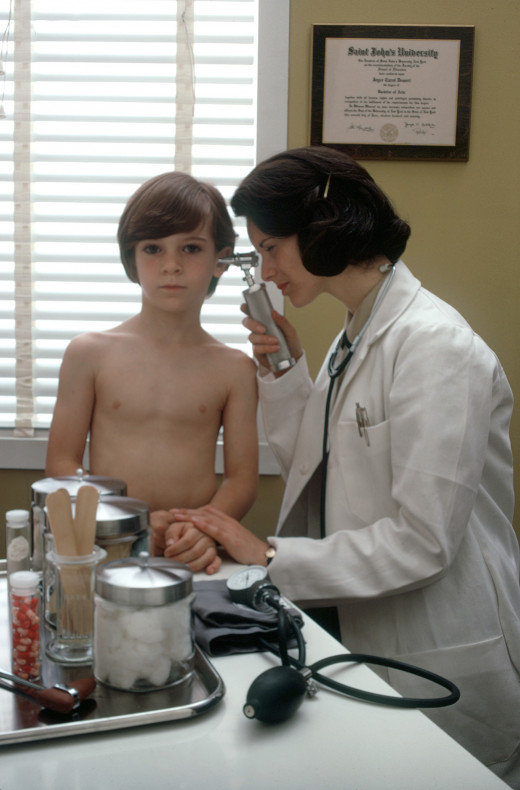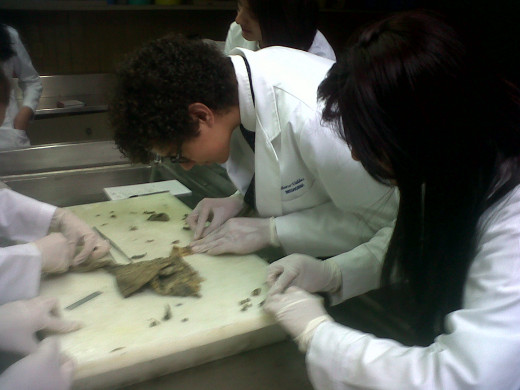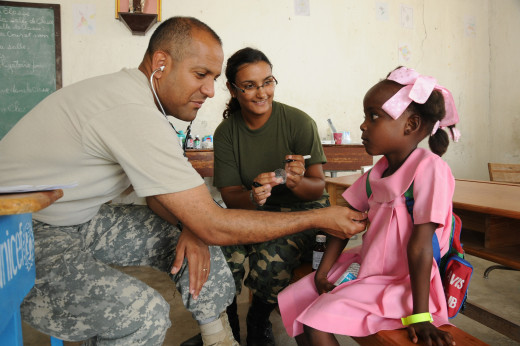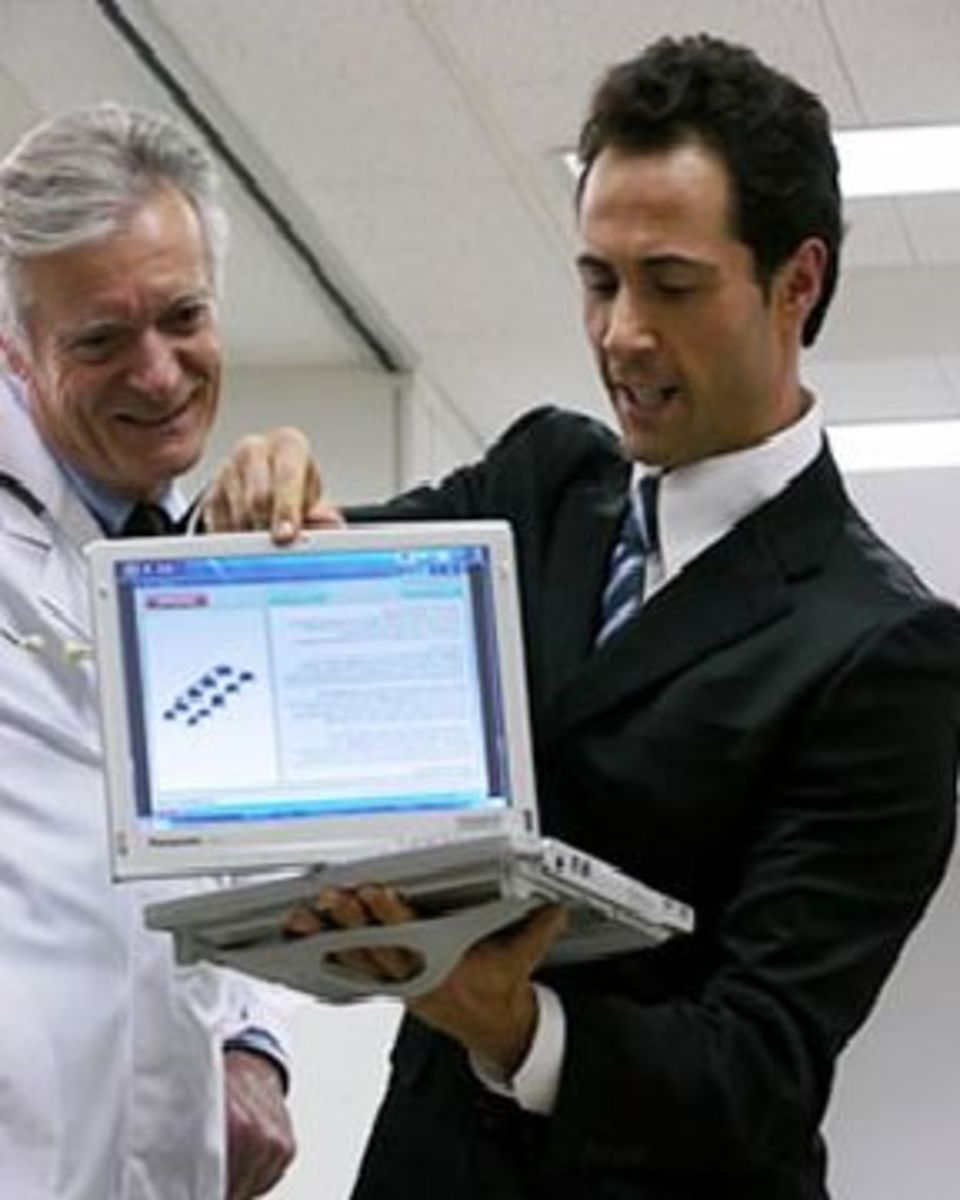Becoming a Doctor: Questions to Ponder before Applying to Medical School

My Life As A Doctor
Becoming a physician, whether an M.D. (doctor of medicine) or D.O. (doctor of osteopathy) is a lengthy and difficulty process. By the time I was finally done with my education I calculated that I had completed 25th grade. I had completed four years of college, four years of medical school, and a five-year combined family medicine/psychiatry residency. Residency is the post-doctoral training required of doctors who want to achieve certification in a specialty; interns are first year residents and other residents are just called residents. By the time I was done I was in my thirties, and so I probably spent at least the first third of my life completing my formal education, if I am fortunate enough to live past 90. My informal education continues every day as I learn from patients and from reading to keep up to date in the field I practice. I am required to document 50 hours per year of ongoing medical education to maintain my position at my hospital, but I estimate I spend at least twice this much time looking things up, reading the latest articles, and researching information before I teach other doctors.
That’s a lot of work and time invested in my job. I really enjoy being a doctor and I’m glad I’ve made the life choices I’ve made. I get to meet many interesting people and often I am able to help them, which is a privilege. I treasure the thanks I get from my patients and I keep all the cards and pictures I receive. I find medicine to be very collegial which is a great fit for my personality; I enjoy teamwork and cooperative efforts. I get to read and write and speak about the mysteries of the human brain and mind, which I believe is the exciting frontier of medicine at this time. I also make a comfortable living (although I am not anywhere near anyone’s definition of wealthy). On the other hand, I work long hours. My family can’t always count on me being home because if a crisis arises at the end of the day my duty is to be there for a patient. I don't always succeed. Sometimes people are just mad at me, which is hard enough, and sometimes patients die which is extraordinarily painful even when there was nothing I could have done. Litigiousness and business models have changed the face of medicine and I struggle with protecting myself, providing good care and meeting ever increasing demands like most doctors do. Like most physicians, I try to take care of myself but struggle with competing priorities – patients, colleagues, family, self and don’t always come out the winner. Medicine becomes a big part of who you are when you a doctor; it can be a good life but also a hard one at times. So when I meet young people who say they want to become doctors I encourage them to think about the following questions.

Why Do You Want To Go To Medical School?
This is probably the single most important question to have straight in your own mind before applying to any medical school. Give yourself the most honest answer you are capable of, not necessarily the one you will put in your application essay. There isn’t a particular right answer but when the path is difficult, which will be much of the time, it really helps to remind yourself why you are putting in all this time and work. The most common reason I hear is “I want to help people.” Which is wonderful, but I want to help people is a little vague as a statement. If your main reason for becoming a doctor is altruism then try to anchor that to a story or experience of a time you needed help and received it or a time when you were able to help someone. Also realize that there are many, many ways to help people besides being a physician.
If your answer is that you want to make money, you might want to look at other options. Medicine as a business is evolving and there will probably be many changes in the near future, but overall being a doctor is not a great way to make a lot of money. If you still want to both be a doctor and make a lot of money, figure out what specialties pay well and what you will need to do to get a residency position in those specialties, which tend to be very competitive. If your answer is that you want to please a parent or other family member I strongly encourage you to think again about your career path. Medicine as a study is much too hard to be doing it for anyone other than you. It will take time, energy, and money and it will cost you other personal and professional opportunities. To be worth it, it has to be something that you want, for yourself, not for anyone else.
How Are You Going To Take Care of Yourself?
I wish someone had asked me this before I began medical school. I never really thought about it much until it became obvious to me that I wasn’t taking care of myself and was paying the price in my own health and well-being. Many medical schools and residency programs will talk about wanting students and residents to care for themselves. However, I will be very honest here. The reality in medical culture in most places in the United States today is that self-care is a low priority. Peers and superiors respect hard work, dedication to patient care, getting the right answers, and showing up to take care of your responsibilities. Physicians tend to wear their long hours and sleepless nights like a badge of honor, as if the harder you work the better you are as a doctor and as a person. New regulations created to protect patients limit the hours residents can work, which is a very good thing, but the culture of work harder and longer is still very much alive. Is this a healthy culture? No, I certainly don’t think so. However it is extremely pervasive and it can be very difficult to swim against a current like that. There are starting to be options for taking time off, sharing residency positions and jobs, creating part time work, and other ways to limit the hours of medical training and work, so there is hope out there. If you engage in full time medical training, plan periods for adequate rest and recovery and write them down. Keep them as sacred appointments with yourself. Engage in the activities that refresh and rejuvenate you on a regular basis. Identify people who will be willing to listen to you and support you. Find some type of exercise you enjoy and perform it regularly.

Are You Able To Become A Doctor?
This is such a hard question to ask. There are so many people who dream of being a doctor and realizing they are not up to the challenge is painful. However, I encourage you to examine yourself very honestly before you apply to medical school. The three qualities I believe you need as a physician are compassion, intelligence and physical stamina. I don’t know you and can’t answer these questions for you, so please ask yourself.
Do you have the compassion necessary to be a physician? Can you look at a man who is drunk and stinking and throwing up blood and care enough about him to stay in the room and get the bleeding stopped despite the smell? Can you see patients with concern and care when you yourself are tired and overworked? Can you hold in mind that they have come to you for help and offer that help? No one is compassionate all the time, so please don’t imagine that you have to be a perfect person. However medicine tends to wear at your compassion. There is a reason people talk about compassion fatigue and burnout. It helps to start with a deep well of compassion in the first place.
Do you have the intelligence and physical stamina to complete this task? The first two years of medical school are all academic and they are extremely intense, much more demanding than any course I ever took in college. It was like trying to drink water from a fire hydrant; information floods in at a tremendous pace and you have to learn and remember it all. The third year of medical school is worse, because you are trying to remember all that information in a patient care context, being asked questions on the spot in group meetings with peers and supervisors, and doing it with inadequate sleep. The fourth year of medical school in most schools isn’t bad. You are doing more clinical work but it is often in electives chosen to round out your education. Intern year is like third year of medical school but much worse, because now you are actually responsible for caring for patients, since you are now a doctor. You are being asked to make decisions and make sure everything needed for your particular patients gets done. In addition to medical knowledge you have to learn the system of your hospital and how to make it work, again working long hours with not enough sleep. As a resident you begin to supervise interns and medical students in addition to providing patient care. As a staff you supervise residents, interns, and medical students; teach lectures; provide direct patient care; and assume ultimate responsibility for the outcomes your patients experience. All of this requires very, very strong skills in memory, pattern recognition, organization, speed of thinking, problem solving and decision-making. It also requires basic good physical health; the strength to physically assist in the care of patients at times, a good immune system to fight off disease, and the ability to stay awake and functional for long hours.


How Are You Going To Pay For Medical School?
This question has quite a few good answers, but it’s important to think out which ones might be right for you. Most medical students take out loans to cover the cost of their education, which can run as high as $180,000 for four years of medical school. Which is in addition to any college loans you might have already taken. The loans are often at a good interest rate and many of them allow you to defer payments for some period of time, but eventually the money has to be paid back. Considering the average salary for a primary care physician is also around $180,000 a year and considering the effect of accumulated interest while you are repaying the loan that can be a tall order. However many do it and it absolutely can work.
If you shudder at the thought of trying to pay that much money back (I know I did) there are some options to get medical school paid for. Some medical schools actually have scholarships based on merit, so definitely inquire with schools you are interested in attending. The National Health Service Corps will pay off a portion of your medical school loans if you work in a Federally Qualified Underserved area for a certain amount of time. If you are a scientifically oriented person who is also interested in research there are many schools with Medical Scientist Training Programs (M.D./PhD) programs; these offer free tuition to medical school but are much harder and take much longer (seven or eight years instead of four) because they also require students to complete a PhD before graduation.
The program I know the most about is the one that helped me. I signed up for the military to pay for medical school. The military funds scholarships for many medical students each year; this is called the Health Professions Scholarship Program. In return for a commitment to serve in the military it pays not only the tuition, fees and books but also a living stipend. It is important to realize a few things before you enter this program: you will have to apply to a military residency program; you will have to take and pass physical fitness tests every 6-12 months; unless the current world situation changes you have an extremely high probability of being deployed to a war zone no matter what your specialty; you will wear a uniform to work every day; you will be told to do things that don’t make sense at times and you will have to do them. I didn’t know or fully understand most of those things before applying; I’m not sure I would have made a different decision but I do wish I had known. If you are considering this option I strongly recommend talking to several military physicians before you sign a contract.
Try Medicine On For Size
My last piece of advice isn’t a question to consider, but rather a task to complete. Spend time with doctors and in medical settings. Don’t be shy. Ask your own doctor if he or she will spend a few minutes answering questions not just about getting into medical school but about life as a physician. Talk with any doctors you know through your community (your family, friends, parents of friends, religious communities). If you are considering a particular scholarship option seek out other doctors who have walked that path. Two organizations (American Medical Student Association http://www.amsa.org and American Association of Medical Colleges https://www.aamc.org/students/aspiring/) have programs specifically for students considering or in the process of applying to medical school. Even better than talking to people, get involved yourself. Volunteer in an emergency room, a nursing home, a hospital or even consider getting trained as an EMT. Find ways to hear from multiple people and see for yourself what being a doctor might be like for you before you take those first steps down a very long road.






